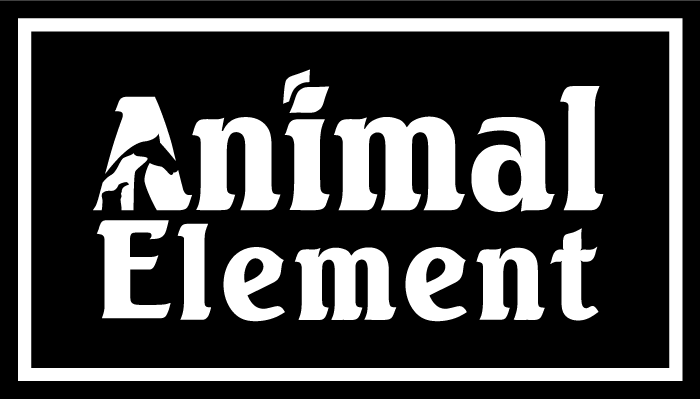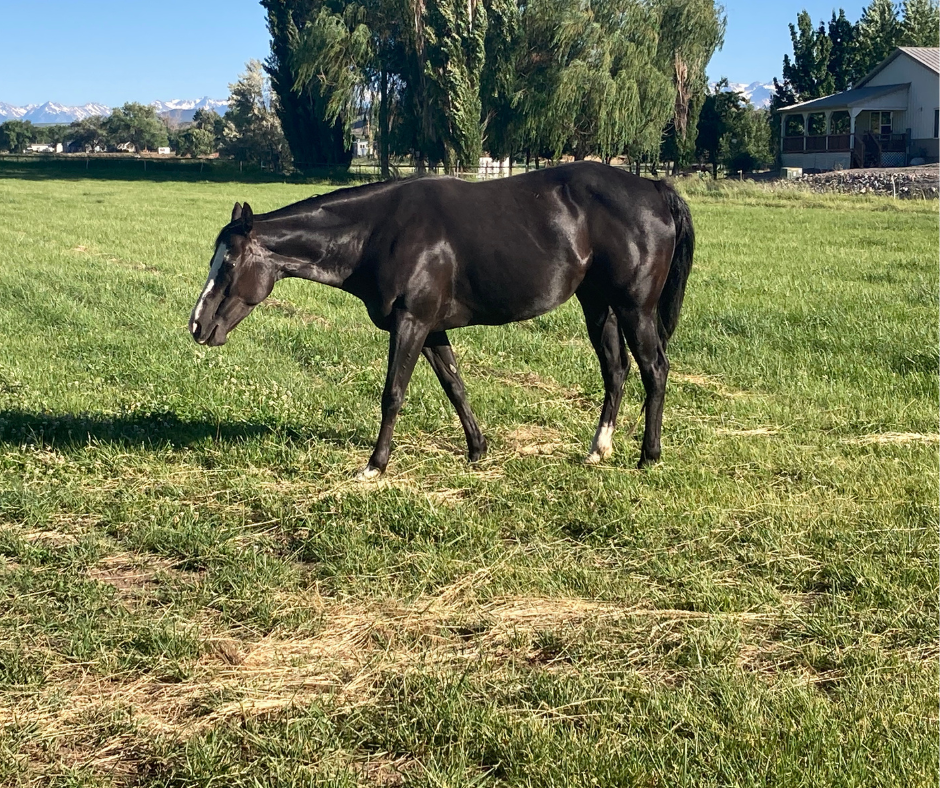Last updated on October 8, 2024
Broodmare Nutrition- What You Need to Know & How to Support Your Mare
You’ve sat around looking at studbooks for hours. You’ve analyzed confirmation, researched disposition, and talked to everyone you can find who has owned or ridden a colt out of your chosen stud. The time has come to breed your beloved mare. Whether you hauled her to the local breeding farm for AI or chose a live cover stud, the heartbeat confirmation appointment at the vet still gives you butterflies. You officially have a broodmare on your hands!
But now what? There’s not exactly a “what to expect when your horse is expecting” guidebook popping up on every store magazine rack these days. A lot of good information about breeding and raising horses is still locked away in the minds of experienced horsemen and vets.
In a perfect world, your mare will conceive on the first attempt, she’ll keep the proper weight through the entire pregnancy on nothing more than pasture grass or hay, and a beautiful foal will be born with zero complications.
The only problem is that we’re NOT in a perfect world. Our soil has been depleted of nutrients, and polluted with toxins. Your mare may be dealing with an old injury or not a fantastic body condition. So more than likely your (soon-to-be) broodmare may need a little extra nutritional help here and there throughout her pregnancy. But how much? We dive into that topic in this article!

What Does a Broodmare Need Nutritionally
If your mare is already in good body condition before impregnation and is not a hard keeper, her diet shouldn’t change too much during the first 7-8 months of pregnancy. A horse’s body condition score (BCS) is determined by the amount of fat at certain areas of the body: neck, shoulders, withers, back, ribs, and tail base. It ranges from 1-9, 1 being dangerously underweight and 9 being obese. Prior to insemination, mares should have a BCS between 6 and 7. This allows for faster conception and a healthier pregnancy overall. The first two trimesters are when you can adjust the mare’s BCS to get her to an ideal score if she didn’t start at a good weight.

The fetus grows pretty minimally during the first ⅔ of gestation, so the broodmare’s diet doesn’t need to change too much. The most important nutrients to pay attention to are crude protein, digestible energy, calcium, phosphorus, and Vitamin A. A high-quality forage or a well-seeded pasture should be a sufficient diet.
Supplementation All Depends on the Quality of Forage
As a rule, 8-10% of a healthy horse’s daily feed should be crude protein, depending on their workload. Most high-quality hays and pasture grasses contain enough protein not to need diet supplementation. However, if the pasture or hay isn’t great quality, adding a concentrate feed may be beneficial. Just be careful not to overfeed. Horse owners sometimes tend to overfeed a pregnant mare and underfeed a lactating mare. Check out this article from the Cooperative Extension Office at the University of Kentucky to learn more about the ideal percentages of horse feed.
Phosphorus is a vital mineral for all horses and is luckily consumed enough through hays and grasses that it’s very rare for mature horses to be phosphorus deficient. However, because it is responsible for bone growth and cell production, it is especially important in broodmares. Calcium is also an important mineral for bone growth in foals, and bone health in mares. Like phosphorus, it’s found in plentiful amounts in high-quality forages. Legume hays are higher in calcium so it may be a good idea to feed your pregnant or lactating mares alfalfa.
Broodmare Nutritional Needs Change During Last 90 Days
During the last ⅓ of the pregnancy, the fetus gains weight at an intense speed…about a pound a day! That rate of growth demands a lot nutritionally and energetically from the broodmare. Here is where diet should change and be paid close attention to.

Crude protein requirements increase by approximately half a pound (daily) during the last part of gestation, and Vitamin A levels requirements are doubled. Calcium and phosphorus levels also need to increase above maintenance levels at this time. These increased nutritional requirements can be met by upping the daily grain feeding, although some people also opt to add a vitamin mix. Be sure to read the nutritional labels to make sure your broodmare is not receiving too much or too little of a certain nutrient or vitamin.
Again, it’s important to note that the quality of the forage or hay your mare is consuming directly plays into the amount of concentrate grain feed you should be feeding her. The higher the quality forage, the less feed she will require.
Don’t Forget About the Lactating Mare!
Once a foal is born, the broodmare’s work is just getting started! Producing milk requires an insane amount of nutrients and energy, especially in the first 3 months. A 1200lb mare could easily need 12-15 pounds of grain and 10-12 pounds of good quality hay a day to meet her body’s energetic needs. A lactating mare can produce 2-3% of her body weight in milk a day! She will produce milk even if her nutritional needs are not adequately met, which can cause severe deficiencies and reduced BCS in the broodmare, and lower quality milk which will affect the growth of the foal.

Here is where the mare’s body condition PRIOR to pregnancy and foaling comes into play. It’s extremely difficult to improve a lactating mare’s BCS because she requires such a large amount of food, increasing the risk of colic and founder. Not to mention moving to a different location after foaling, which is a common practice, can add stress to an already overworked body.
For more information on the nutritional requirements for different stages of gestation, check out this great article from Oklahoma State University.
So How Can Animal Element Supplements Help?
While we don’t have supplements especially marketed towards broodmares, we do STRONGLY encourage all pregnant and lactating mares (and actually every horse in general…but we digress) to be on Foundation Daily Detox and NuTrack Digestive Support. This powerhouse combo ensures that your mare is absorbing and using every available nutrient, while also clearing her body of toxins and helping all organs function properly.
FDD is packed full of a proprietary blend of herbs, minerals, and plants that support digestive and cognitive function and reduce inflammation. The nutrient-rich ingredients will also help your mare meet her protein and vitamin requirements before, during, and after pregnancy.
NuTrack is a blend of several different amino acids that increase the health and functionality of the digestive system and ensure that the intestines are absorbing all the nutrients available. Together, FDD and NuTrack can help improve your mare’s BCS, nutritional levels, and help reduce the risk of severe gastrointestinal issues. For more details on HOW they do this, check out these articles: The Number 1 Must-Have Supplement for Every Horse and What Is An Amino Acid & Why Are They Important for Horses?
Sending Your Broodmare Out to Pasture, Yes or No?
So can you just kick your mare out to pasture and hope that she is good to go? Well…. In theory…Yes. BUT, by the time most mares are turned into broodmares, they are either aged or injured. Both can take a toll on a horse’s ability to metabolize nutrition. So it is crucial for your mare to have a good BCS (between 6 and 7) before she is inseminated. This gives her, and her foal, the best chance of having an uncomplicated and healthy pregnancy and birth. You can improve her body condition fairly easily during the first few months of pregnancy. But by the time she is 90 days out from her foaling date, or lactating, it becomes increasingly hard for her to gain extra weight (not related to the growing foal).
Additionally, if your pasture and soil quality has been impacted (like most) by environmental toxins, chances are your mare is missing key nutrients in her forage. If the hay you’re feeding, or the pasture she’s in has high-quality forage, it’s possible that you will not have to supplement her diet much until the very end of gestation. But if the pasture is sparse, or the hay is not very good, you will have to increase her grain feed intake.
If you’re unsure of the nutrient qualities of your pasture, you may consider getting it tested. Also, be sure to read the labels on your feed and have hay tested to know what exactly your broodmare is getting. You’ll probably have to do some math, but it’s well worth it!
AE Can Add That Extra Boost

If you are not already feeding FDD and NuTrack, we recommend starting immediately…before the breeding process begins! The nutrients and minerals alone are beneficial to her and her future foals, but the detoxification and anti-inflammatory properties will support a healthy pregnancy. A healthy gut is KEY to nutrient absorption, and nutrient absorption is key to a healthy broodmare and foal.
To save a little bit of money, and prevent you from running out, you can buy FDD & NuTrack in bulk! Trust us, you won’t regret it for one second. Call Mark Kaylor at 509-301-1798 for all the details. Cheers to a happy and healthy foal (and mama)!
All content is intended for informational purposes only. Proudly written for Animal Element by the team at FaithHanan.com
Resources:
- Hiney, Kris. “Nutritional Considerations For Broodmares.” Ferguson College of Agriculture, Oklahoma State University, Extension, Jun 2018. https://extension.okstate.edu/fact-sheets/nutritional-considerations-for-broodmares.html
- Hiney, Kris. “Minerals for Horses: Calcium and Phosphorus.” Ferguson College of Agriculture, Oklahoma State University, Extension. April 2024. https://extension.okstate.edu/fact-sheets/minerals-for-horses-calcium-and-phosphorus.html
- “Nutrition of the Broodmare.” Equine Section, Department of Animal Sciences, University of Kentucky. 1988. Agricultural and Natural Resources Publications. 21. https://afs.ca.uky.edu/files/asc112.pdf
- “The Body Condition Score.” Iowa State University Extension and Outreach, Equine Science. https://www.extension.iastate.edu/equine/body-condition-score

